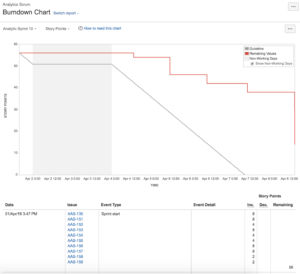by Janice Dalmacio –
Automation is on the rise. From manufacturing to self-driving cars to financial services to software development, we see automation changing the way people work and the type of service customers can expect.
What is automation?
Automation is the use of technology to make processes run on their own. It results in increased reliability and efficiency because tasks are done the same way each time for a duration beyond the endurance of a human resource, and it removes the factor of human error.
How can automation be applied to project management?
While it is unlikely that the job of the project manager can be automated in its entirety, certain activities can be automated using already existing tools and technologies. A McKinsey & Company research suggests that as much as 45% of work activities (not specific to project management only) can be automated by adapting existing technologies. That suggests that 45% of a project manager’s time can be allocated to higher value tasks such as strategizing, designing, relationship building, process optimizations, etc. Imagine how much impact that can have in an organization.
Let us look at three of the ten project management knowledge areas: Time Management, Quality Management, and Communications Management.
Time Management involves estimating activity durations and controlling the schedule. For most of the projects I have been a part of, we create estimation templates that guide, standardize and partially automate the estimation. In this template, key activities are listed and factors affecting those activities are provided as input. Based on historical data, weights and standard costs are assigned to the factors in order to generate an estimate per activity and for the project overall. This has the benefit of ensuring that all known factors are considered every time an estimate is created and the weights and cost are based on past project implementations. In fact, the estimation template for one of our engagements has been able to consistently produce estimates with a variance <=3%. Jira, one of the most widely used software developments management tools especially for agile projects, has built-in reporting that automatically generates reporting charts that allow a PM to monitor and evaluate a project’s progress real time such as burndown charts and velocity charts. It also has the ability to notify subscribers when a task is nearing its due date.
(click to enlarge graphic) The grey line shows an approximation of where a team should be based on linear progress. This burndown chart shows that the team is not on track to complete the committed work as the grey line is below the red (planned) line.
Quality Management involves quality assurance and quality control. Test automation has been a strong focus of RCG. We have a strong test automation practice that leverages a variety of tools such as jUnit, Serenity, Selenium, Cucumber and SoapUI to automate unit and functional testing. With these tools, we are able to not just run automated tests without incurring too much cost but also automatically generate reports that show our unit test coverage, static code analysis metrics, and functional test metrics. This allows a project manager to monitor and control the quality of a project without the manual data gathering and building of reports.
Communications Management involves project status reports and measurements. JIRA and Slack, a team collaboration tool, can be of great use to a project manager in this knowledge area. JIRA, as mentioned earlier, has built-in reports that allow a project manager to generate project metrics and status reports automatically instead of going through the tedious process of gathering data and building the reports manually. Slack allows for automatically notifying the project team as well as creating shared workspaces where conversations can be organized and accessed/mined without setting up a lot of meetings and creating meeting notes.
Will automation strengthen project management or make it obsolete?
Automation is changing our lives and it will continue to do so. With the advancements in AI, it will also evolve from manual and repetitive task automation to more intelligent automation such as predictive analytics, image recognition, big data analysis, etc. While there seems to be a question (and some fear) that automation will replace certain jobs, even project management, it is highly unlikely that it will render the project manager’s role obsolete in its entirety. More likely, it will force an evolution of the role. It is a tool that can free up more time for a project manager to focus on activities where humans excel at far better than machines or technology such as strategy, process improvements, relationship management and building of domain knowledge instead of documentation, data gathering, and monitoring. Freedom from repetitive work and more time on engaging work, hopefully, will also lead to improvements in productivity, accuracy, and level of fulfillment.
#IdeasRealized





